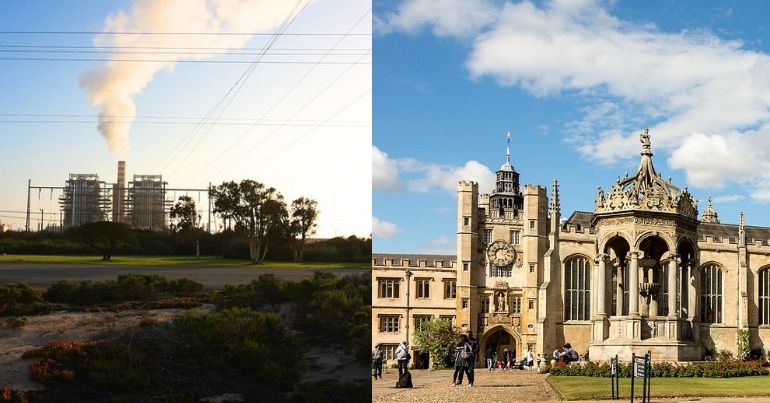After years of sustained pressure from students and alumni, as well as from other groups, Trinity College has committed to fully divesting from fossil fuels across its portfolios. Currently holding around £15m of investments in companies involved in the extraction or production of fossil fuels, the college will divest 95% of these by the end of the year, with the remaining 5% divested within 5 to 10 years. Trinity's endowment is more than double that of the second-richest Cambridge college, St. John's, and also includes large property holdings. The college's announcement includes an ambitious net-zero plan covering both direct and indirect emissions across their entire portfolio. Trinity's master, Dame Sally Davies, explains that "we at Trinity intend to bring together expertise both within and beyond the College to play a greater role in further climate change action", borne out by its presence as a co-filer of last month's ShareAction resolution pressuring HSBC to implement specific targets for reducing its fossil fuel financing.
As ShareAction's press release points out, "HSBC is Europe’s second largest financier of fossil fuels, after Barclays". And yet, despite filing this resolution with HSBC and announcing their divestment and net-zero plans, Trinity College currently still banks with Barclays.
This contradiction has not gone unnoticed by Cambridge University Zero Carbon Society, welcoming the news but noting that "while Trinity maintains investments in arms companies, and banks with Barclays – the biggest funder of fossil fuel infrastructure in Europe – there is still work to be done." A similar caveat was underlined by Extinction Rebellion (XR), in a statement from XR Cambridge, XR Youth Cambridge and XR Universities Cambridge: "if Trinity wants to demonstrate that the climate truly matters deeply to them, they must sever all their ties to the fossil fuel industry, not just their investments ties. This includes their teaching decisions, career guidance, and banking with Barclays, the biggest funder of fossil fuel infrastructure in Europe."
Last year, XR activists added to the pressure on Trinity to cut ties with fossil fuel companies with an intervention that equally targetted Barclays. Despite the progress announced by the college, calls from XR and others for Trinity to distance itself from Barclays - and for the college's Business and City Association to send no more 'Distinguished Speaker' invitations to Barclays' Group Chief Executive, Jes Staley - are likely to continue until the bank replaces greenwash with far more genuine action.
